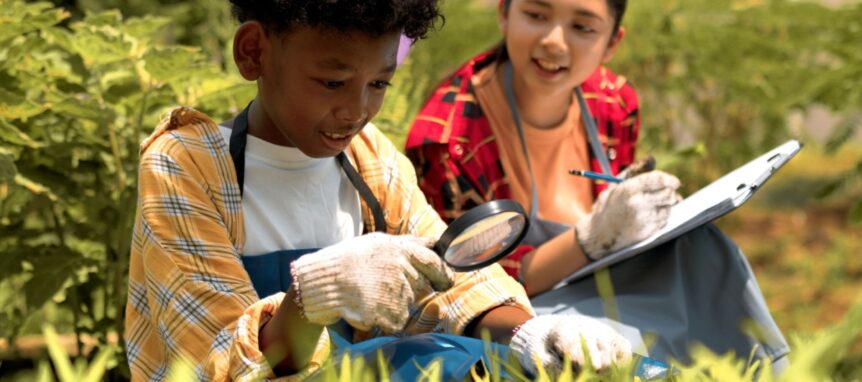For many parents and educators, the return to school signals a renewed focus on academic achievement and intellectual growth. But what if one of the best tools to support success in the classroom wasn’t found behind a desk—but outside, in the woods, by a lake, or under the open sky? Outdoor learning, especially in a structured camp environment, can have a profound and lasting impact on children’s academic abilities.
Outdoor experiences provide real-world applications of concepts children often encounter in school. From calculating distance while hiking to observing ecosystems up close, camp encourages curiosity, critical thinking, and problem-solving—skills essential to thriving academically. Beyond this, outdoor learning boosts confidence and social-emotional development, both of which contribute directly to academic readiness and performance.
Cognitive Growth Through Hands-On Experience
Camps offer a dynamic environment for experiential learning. When children engage directly with the natural world, their brains are activated in different ways than when passively receiving information in a classroom. Observing animal behaviors, conducting small science experiments, or tracking weather patterns outdoors allows campers to apply scientific thinking in a fun, low-pressure setting.
This kind of hands-on learning fosters retention and comprehension. For example, understanding food chains becomes much clearer when a child spots a heron hunting along a shoreline, or when they observe how plants grow over the course of a week. These real-world examples bring abstract ideas to life, reinforcing what children will later study in school.
Building Executive Function and Self-Regulation
Executive function skills—like impulse control, working memory, and cognitive flexibility—are key predictors of academic achievement. Outdoor environments are uniquely suited to support their development. Unstructured playtime, team-based challenges, and navigating new environments all require campers to practice these skills naturally and consistently.
Children learn to manage their time, make decisions, follow multi-step directions, and adjust when plans don’t go as expected. Whether planning a route during a nature scavenger hunt or working with peers to set up a group project, campers develop the self-regulation needed to thrive in a school setting.
Strengthening Focus and Attention
Research shows that time spent in nature helps improve attention spans and reduce symptoms of attention-deficit disorders. The natural world offers a restorative environment, giving children a break from overstimulation and allowing their minds to reset. After spending time outdoors, many kids return to academic tasks with improved concentration and mental clarity.
Activities like archery, canoeing, and environmental science projects require sustained focus and precision. These same skills directly support academic tasks such as reading comprehension, writing, and test-taking.
Encouraging Curiosity and a Growth Mindset
Camp environments are built to spark exploration. With every new trail, animal sighting, or science activity, children are encouraged to ask questions and seek answers. This nurtures a growth mindset—the belief that abilities can be developed through effort and learning. Campers learn that failure is part of the process, whether it’s missing the target in archery or struggling to identify a bug species.
This attitude carries over into the classroom, where children with a growth mindset are more likely to embrace challenges, persevere through difficult subjects, and take initiative in their learning.
Social Development and Classroom Readiness
Academic success is also closely tied to social and emotional development. Camps provide rich opportunities for collaboration, communication, and community-building. Kids learn to express their ideas, listen to others, resolve conflicts, and support their peers. These skills are essential not only for group projects and classroom behavior but also for forming the kind of positive relationships that make learning enjoyable.
Children who feel confident socially are more likely to participate in class, ask for help when needed, and contribute to group learning. The ability to connect with others is a strong foundation for both academic and personal growth.
Bridging Outdoor Learning with the School Year
When the camp experience ends, the lessons don’t stop. Parents and educators can help bridge outdoor learning with academic growth by encouraging children to reflect on what they learned at camp and how it applies to school. Journaling, drawing, or storytelling can help kids express what they’ve experienced and retain their knowledge.
Simple questions like “What was something new you learned at camp?” or “How did you solve a problem during that activity?” can spark meaningful conversations and reinforce cognitive connections.
The Academic Advantage at Camp Live Oak
At Camp Live Oak, outdoor learning is more than a summer memory—it’s a tool for lifelong growth. Through hands-on science lessons, team-building games, and skill-building activities, campers develop habits that support academic achievement. Each experience—from mastering a new challenge to collaborating with peers—translates to greater confidence and capability in the classroom.
To learn more about how Camp Live Oak supports educational development, visit their contact page.

